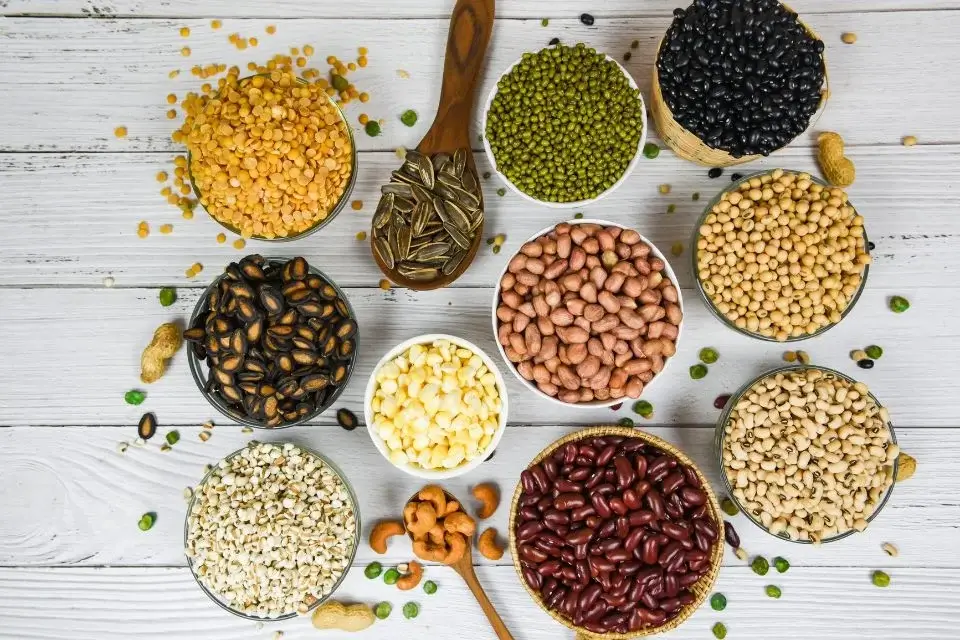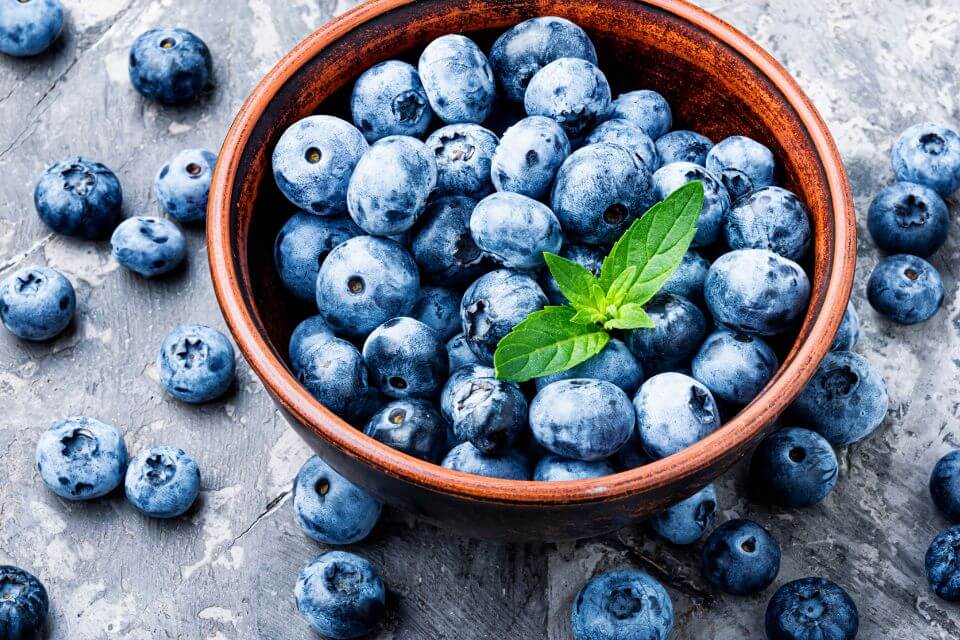We’re becoming more aware of the close connection between our diets and mental health as we adopt an integrated perspective of well-being. We take a deep dive into all aspects of “what to eat for good mental health” in this extensive guide. We’ll explore meals that help our mental health in addition to nourishing our body. We’ll learn about the vitamins, minerals, and nutrients that can improve mood, memory, and overall cognitive function in this delectable journey into the core of British nutrition. Come explore the palette of well-being with us, and discover how to nourish our minds for a more joyful, prosperous life.
Table of Contents
The Relationship Between Nutrition and Mental Health
We must keep in mind that we are what we eat in our quest for happiness. When it comes to mental health, this proverb is accurate. The decisions we make every day at the dinner table have a significant influence on our emotional health, mood, and cognitive abilities. It’s important to provide our brains the necessary nutrition to function, not just to satisfy our physical hunger.
Not only can a balanced diet help avoid mental health problems, but it can also be a powerful treatment for individuals who are suffering from mental health illnesses like anxiety and depression. Come along for a fun investigation into the culinary pillars that might support your emotional well-being.
Omega-3 Fatty Acids: Brain Food Extraordinaire

Think of omega-3 fatty acids as the knight in shining armour for your brain. These unsung heroes of the nutritional realm are paramount for your brain’s well-being. They actively support brain health and have been directly linked to improved mood and cognitive function. These essential fats are vital for maintaining healthy brain cell membranes and keeping inflammation at bay.
- Salmon: This delectable fish is a shining example of omega-3 abundance. To give your mental health a boost, aim to invite salmon to your plate at least once a week.
- Mackerel: Mackerel, another fatty fish, is generously packed with omega-3s. Whether grilled or added to a vibrant salad, mackerel brings a symphony of brain-boosting notes to your meal.
- Sardines: Don’t underestimate these small, silvery wonders. Sardines are a nutritional powerhouse, and they’re among the richest sources of omega-3s. Incorporate them into your diet regularly to unlock their remarkable benefits.
Leafy Greens: The Verdant Champions

Dark, leafy greens are like Mother Nature’s gift to our plates. They are a treasure trove of essential vitamins and minerals, including folate, a pivotal nutrient for neurotransmitter production and regulation. Folate deficiency has been closely associated with depressive symptoms, making these greens a valuable asset to your mental well-being.
- Spinach: Versatile and nutritious, spinach can take many forms in your meals. Whether as a star in salads, a green companion in smoothies, or a humble side dish, this leafy legend has your back.
- Kale: Kale is another vibrant leafy green, known for its nutritional density. This green giant is celebrated for its impressive folate content and a plethora of health benefits.
Whole Grains for Steady Sustenance

Oats, quinoa, and brown rice are examples of whole grains that provide a consistent energy release that can help control blood sugar levels. This lessens the possibility of emotional fluctuations and promotes a stable mood in turn. Whole grains are rich in nutrients, particularly fibre, which is excellent for your digestive system.
- Oats: Oats not only provide steady energy but also an abundant serving of fiber. Kickstart your day with a hearty bowl of oatmeal for an enduring energy supply.
- Quinoa: A complete protein source, quinoa offers all essential amino acids. It’s perfect as a base for salads, grain bowls, or as a side dish.
- Brown Rice: Make the smart choice by swapping white rice for brown. Brown rice comes with more fiber and nutrients, enhancing your diet. Use it as a side dish or an essential ingredient in diverse recipes.
Berries: Nature’s Little Gems

Berries are nature’s treasures, not only for their sweet and tangy tastes but also for their mental health benefits. They’re rich in antioxidants and vitamins that promote brain health. Among them, blueberries stand out for their remarkable cognitive and mood-improving qualities.
- Blueberries: Often dubbed “brain berries,” blueberries are celebrated for their cognitive advantages. Snack on them, blend them into smoothies, or sprinkle them atop your morning cereal or yogurt for a delicious mental boost.
Nuts and Seeds for Brain Brilliance

Nuts and seeds are the tiny powerhouses of nature, generously providing essential vitamins and minerals that contribute to good mental health. Among them, vitamin E deserves the spotlight for its brain-boosting role. It shields nerve cells and may reduce the risk of cognitive decline.
- Almonds: Almonds are more than just a snack; they’re a superb source of vitamin E. A handful of almonds can serve as a satisfying and nutritious midday pick-me-up.
- Peanuts: Peanuts offer another avenue to harness the benefits of vitamin E. Enjoy them as peanut butter, a versatile spread for sandwiches and snacks.
- Pumpkin Seeds: Pumpkin seeds, apart from their vitamin E content, bring a diverse array of essential nutrients to the table. Sprinkle them on salads or relish them as a brain-boosting snack.
- Chia Seeds: Chia seeds, rich in both omega-3 fatty acids and fiber, are the chameleons of the culinary world. They effortlessly weave their nutrition into smoothies, yogurt, or oatmeal.
Probiotics and the Gut-Brain Connection

The gut-brain connection is a topic of intrigue, and research is shedding light on its profound implications for mental health. Consuming probiotics through foods like yogurt, kefir, and fermented vegetables can have a transformative effect on your mood and may alleviate symptoms of depression.
- Yogurt: Yogurt is a renowned source of probiotics. Its creamy and tangy goodness can be savoured as a snack or integrated into various culinary creations.
- Kefir: Kefir is a probiotic powerhouse, presenting a fermented dairy product that can be relished as a drink or harnessed as a base for vibrant smoothies.
- Fermented Vegetables: Foods like sauerkraut and kimchi not only deliver probiotics but also impart an explosion of flavour to your dishes. They add a zesty twist to your culinary adventures.
Lean Proteins: The Architects of Neurotransmitters

Proteins are the architects of neurotransmitters, those chemical messengers that play a pivotal role in regulating mood and emotions. Incorporating lean proteins into your diet can foster good mental health.
- Chicken: Chicken, the trusted companion in many a dish, offers lean protein that can be prepared in various ways. Whether grilled, roasted, or sautéed, it’s a versatile and delicious choice.
- Turkey: Turkey is another lean poultry option that generously provides essential amino acids for brain health. It’s perfect for sandwiches, salads, and those festive holiday feasts.
- Lean Beef: Lean cuts of beef bring not only protein but also an array of nutrients to the table. They can be seamlessly integrated into stir-fries, stews, and other culinary creations.
- Tofu: Tofu, a plant-based protein source, is a versatile ingredient suited to a wide array of recipes. It’s a smart choice for vegetarians and vegans.
- Legumes: Legumes like lentils, chickpeas, and black beans serve as plant-based sources of protein and fiber. They are superb options for those embracing a plant-centric diet.
Additional Mood-Boosting Delights
While we’ve traversed the world of what to eat for good mental health, there are a few more delicacies worth mentioning:
Dark Chocolate: A Blissful Indulgence
In moderation, dark chocolate is a mood-lifting treat. It can elevate your spirits and reduce stress. Dark chocolate houses antioxidants that enhance blood flow to the brain, promoting sharper cognitive function.
Turmeric: The Golden Spice for Emotional Balance
Turmeric, a vibrantly golden spice, is renowned for its anti-inflammatory properties. It’s been associated with mood improvement and reduced symptoms of depression. Incorporating turmeric into your diet can be as simple as adding it to curries, soups, or stir-fries.
Conclusion
Your nutrition has a significant impact on your mental health, and you can nourish your mind and promote emotional well-being by choosing deliberate, educated food choices. We’ve looked at a range of foods, such as those high in omega-3 fatty acids, leafy greens, whole grains, berries, nuts, and lean meats, that are praised for their benefits to mental health. Probiotics have been emphasised for their function in the gut-brain axis, providing an additional aspect of health.
When you organise your meals, keep in mind that you are taking care of your mental health in addition to your physical hunger. Making healthy eating a daily priority starts with the decisions you make, and diet is a major factor in that process. By incorporating these brain-boosting foods into your daily meals, you embark on a path towards enhanced mood, sharper memory, and optimal cognitive function. Mental health is a profound journey, and it all starts with what’s on your plate. So, savor the flavors of well-being, and let your culinary choices be a symphony of happiness.

